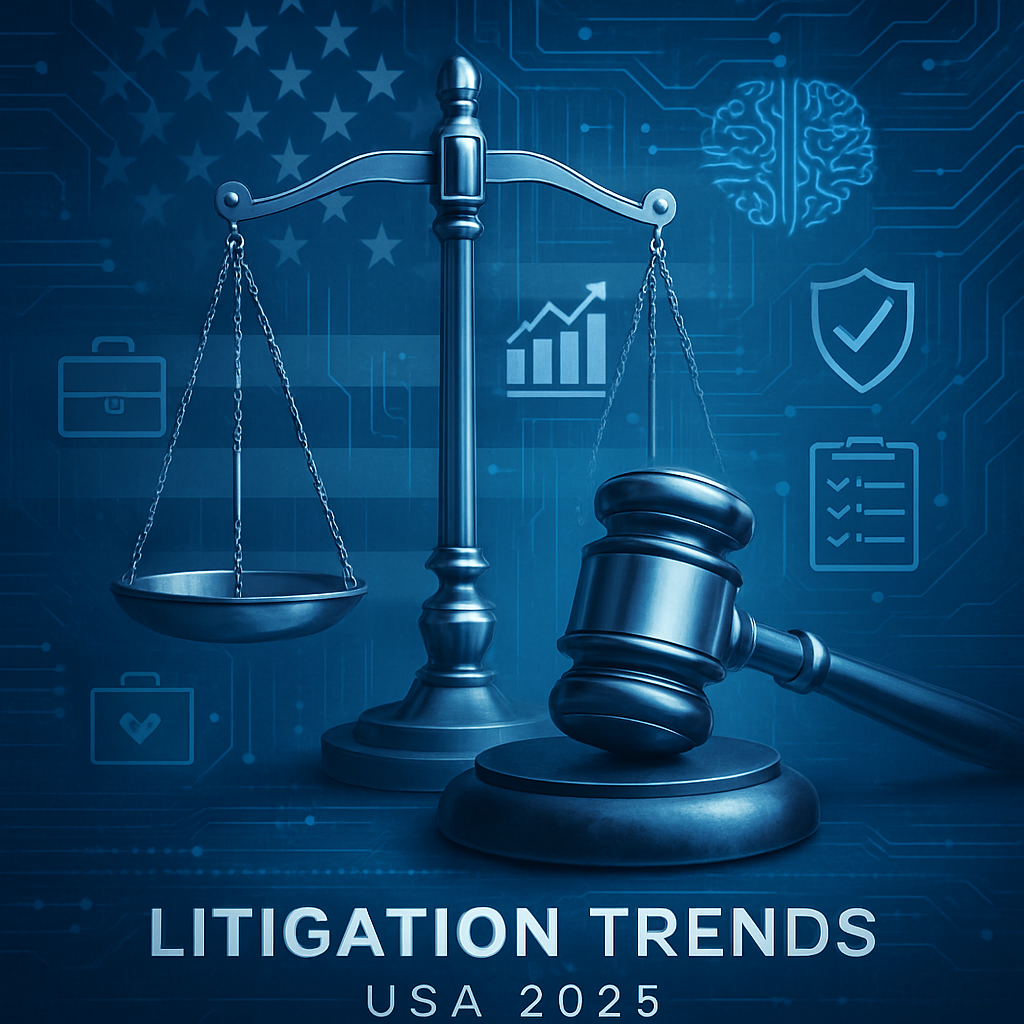Understanding the Nondelegation Doctrine and Its Impact on Federal Law
The nondelegation doctrine stands as one of the most significant yet complex principles governing the separation of powers in American constitutional law. This fundamental concept shapes how Congress can delegate its legislative authority to executive agencies, influencing everything from environmental regulations to financial oversight. Understanding this doctrine is crucial for legal professionals, policymakers, and citizens seeking to comprehend the intricate balance of power within our federal system.
What Is the Nondelegation Doctrine?
The nondelegation doctrine is a constitutional principle derived from the separation of powers framework established in the U.S. Constitution. At its core, the doctrine holds that Congress cannot delegate its essential legislative functions to other branches of government, particularly the executive branch and its administrative agencies.
This principle stems from Article I, Section 1 of the Constitution, which vests “all legislative Powers herein granted” in Congress. The doctrine serves as a constitutional safeguard, ensuring that the fundamental responsibility for making laws remains with the elected representatives of the people, rather than being transferred to unelected bureaucrats or executive officials.
The Supreme Court has recognized that while Congress cannot delegate its core legislative authority, it can provide executive agencies with the power to fill in the details of legislation, provided it establishes clear guidelines and standards for how that authority should be exercised.
Historical Development of the Nondelegation Doctrine
Early Foundations (1789-1935)
The nondelegation doctrine’s roots trace back to the founding era, though it wasn’t explicitly articulated until much later. Early Supreme Court cases like Wayman v. Southard (1825) began to distinguish between legislative powers that Congress must retain and administrative details that could be delegated to other branches.
During this period, the Court generally took a permissive approach to delegation, recognizing that practical governance required some degree of administrative discretion. The industrial revolution and growing complexity of federal governance made it increasingly apparent that Congress could not micromanage every aspect of law implementation.
The New Deal Crisis (1935)
The doctrine gained prominence during the New Deal era when the Supreme Court struck down several key pieces of Roosevelt administration legislation for violating the nondelegation principle. In Panama Refining Co. v. Ryan (1935) and A.L.A. Schechter Poultry Corp. v. United States (1935), the Court found that Congress had delegated legislative authority to the executive branch without providing adequate standards to guide its exercise.
These decisions marked the only times in Supreme Court history that the nondelegation doctrine was successfully used to invalidate congressional legislation. The Court found that the delegations were so broad and lacking in guidance that they essentially allowed the executive branch to make law rather than merely implement it.
Post-New Deal Evolution (1935-Present)
Following the constitutional crisis of 1937, the Supreme Court adopted a much more lenient approach to the nondelegation doctrine. The Court began requiring only that Congress provide an “intelligible principle” to guide agency action, a standard that has proven remarkably easy to satisfy.
Cases like Yakus v. United States (1944) and Whitman v. American Trucking Associations (2001) have upheld extremely broad delegations of authority, provided Congress offered some general guidance about the goals and methods of regulation. This evolution has enabled the growth of the modern administrative state while maintaining the constitutional fiction that Congress retains ultimate legislative authority.
The “Intelligible Principle” Standard
Defining the Standard
The “intelligible principle” standard, established in J.W. Hampton, Jr. & Co. v. United States (1928), requires that when Congress delegates authority to an executive agency, it must provide sufficient guidance to both limit the agency’s discretion and enable judicial review of agency actions.
This standard represents a compromise between constitutional principle and practical necessity. It acknowledges that modern governance requires administrative expertise and flexibility while maintaining some constitutional constraint on the delegation of legislative power.
Application in Practice
In practice, the intelligible principle standard has proven extremely permissive. Courts have upheld delegations based on vague statutory language directing agencies to regulate in the “public interest,” promote “fair and equitable” treatment, or prevent “unfair methods of competition.”
The Supreme Court’s decision in Whitman v. American Trucking Associations exemplifies this approach. The Court upheld the Clean Air Act’s delegation of authority to the EPA to set air quality standards that are “requisite to protect the public health” with an “adequate margin of safety,” finding this language sufficiently specific to constitute an intelligible principle.
Key Supreme Court Cases
Panama Refining Co. v. Ryan (1935)
This landmark case involved the National Industrial Recovery Act’s delegation of authority to the President to prohibit the interstate transportation of petroleum produced in excess of state quotas. The Supreme Court struck down this delegation, finding that Congress had provided no standards to guide presidential discretion and had essentially authorized the executive to make law.
The decision established that Congress cannot delegate unlimited legislative authority, even during national emergencies. It marked the beginning of the Court’s brief but significant challenge to New Deal legislation on nondelegation grounds.
A.L.A. Schechter Poultry Corp. v. United States (1935)
The Schechter case invalidated provisions of the National Industrial Recovery Act that allowed the President to approve industry codes of “fair competition.” The Court found that Congress had delegated legislative power without adequate standards, creating what Justice Cardozo called “delegation running riot.”
This case, along with Panama Refining, represents the high-water mark of nondelegation doctrine enforcement. The Court emphasized that the delegation was so broad it violated the fundamental principle that Congress cannot delegate its essential legislative functions.
Whitman v. American Trucking Associations (2001)
In Whitman, the Supreme Court unanimously rejected a D.C. Circuit Court decision that would have revived the nondelegation doctrine as a significant constraint on congressional delegations. The case involved a challenge to EPA air quality standards under the Clean Air Act.
The Court reaffirmed that the intelligible principle standard is the appropriate test for evaluating delegations and found that the Clean Air Act’s directive to protect public health provided sufficient guidance. Justice Scalia’s opinion for the Court suggested that finding a violation of the nondelegation doctrine would require “a degree of agency discretion that is utterly standardless.”
Gundy v. United States (2019)
The most recent significant nondelegation case, Gundy involved a challenge to the Sex Offender Registration and Notification Act (SORNA), which delegated authority to the Attorney General to determine the statute’s applicability to pre-enactment offenders.
While the Court upheld the delegation by a 5-4 margin, Justice Gorsuch’s dissent, joined by Chief Justice Roberts and Justice Thomas, called for a revival of meaningful nondelegation doctrine limits. Justice Kavanaugh, who did not participate in the case, later suggested sympathy for a more robust approach to the doctrine.
Modern Applications and Challenges
Regulatory Complexity and Administrative Expertise
The modern administrative state relies heavily on congressional delegations to address complex technical and scientific issues that require specialized expertise. Areas like environmental protection, financial regulation, and telecommunications policy involve rapidly changing circumstances and technical details that Congress cannot reasonably be expected to address comprehensively in legislation.
This reality creates tension with the nondelegation doctrine’s theoretical requirements. Courts have generally resolved this tension by adopting an extremely permissive approach to the intelligible principle standard, effectively allowing Congress to delegate broad regulatory authority provided it offers some general policy guidance.
Major Questions Doctrine
In recent years, the Supreme Court has developed the “major questions doctrine” as a related but distinct limitation on agency authority. This doctrine requires clear congressional authorization when agencies seek to exercise powers of “vast economic and political significance.”
Cases like West Virginia v. EPA (2022) have applied this doctrine to limit agency authority even when the underlying statute might satisfy traditional nondelegation analysis. This development suggests a potential evolution in how courts approach questions of legislative delegation and agency authority.
Constitutional Challenges and Revival Efforts
Several Supreme Court justices have expressed interest in reviving the nondelegation doctrine as a meaningful constraint on congressional delegations. Justice Gorsuch’s Gundy dissent outlined a more robust approach that would require Congress to make the basic policy choices underlying regulatory schemes.
This potential revival faces significant practical obstacles, including the enormous scope of existing regulatory programs that might be vulnerable to challenge and the difficulty of unwinding decades of administrative law development.
Impact on Federal Agencies and Regulation
Agency Rulemaking Authority
The nondelegation doctrine’s current permissive application has enabled the growth of extensive agency rulemaking authority across the federal government. Agencies regularly issue regulations with the force of law based on broad statutory delegations from Congress.
This authority extends to major policy areas including environmental protection, financial regulation, workplace safety, and consumer protection. The practical result is that much of federal law is made by agencies rather than Congress, fundamentally altering the constitutional scheme of legislative power.
Judicial Review and Administrative Law
The interaction between the nondelegation doctrine and administrative law creates complex questions about the appropriate scope of judicial review of agency action. Courts must balance respect for agency expertise with constitutional requirements that legislative power remain with Congress.
The current framework generally defers to agency interpretations of their own authority, provided the underlying statutory delegation satisfies the minimal intelligible principle standard. This approach has facilitated extensive regulatory programs while raising constitutional concerns about democratic accountability.
Frequently Asked Questions
What is the nondelegation doctrine in simple terms?
The nondelegation doctrine is a constitutional principle that prevents Congress from giving away its core responsibility to make laws to other branches of government, especially executive agencies. While Congress can allow agencies to fill in details and implement laws, it cannot transfer its fundamental lawmaking power. The doctrine ensures that elected representatives retain responsibility for major policy decisions rather than delegating them to unelected bureaucrats.
Why does the nondelegation doctrine matter?
The nondelegation doctrine matters because it protects democratic accountability and the separation of powers. When Congress delegates too much authority to agencies, it can shield elected officials from responsibility for unpopular regulations while allowing unelected administrators to make important policy choices. The doctrine serves as a constitutional check on this process, theoretically ensuring that major legislative decisions remain with the people’s elected representatives.
Has the Supreme Court ever struck down a law using the nondelegation doctrine?
Yes, but only twice in U.S. history, both during the New Deal era in 1935. The Supreme Court struck down parts of the National Industrial Recovery Act in Panama Refining Co. v. Ryan and A.L.A. Schechter Poultry Corp. v. United States for violating the nondelegation doctrine. Since then, despite numerous challenges, the Court has not invalidated any congressional delegation on nondelegation grounds, though some justices have recently expressed interest in strengthening the doctrine.
What is the “intelligible principle” standard?
The intelligible principle standard is the test courts use to determine whether a congressional delegation violates the nondelegation doctrine. Established in 1928, this standard requires that when Congress delegates authority to an agency, it must provide some guidance about how that authority should be exercised. However, courts have interpreted this requirement very loosely, upholding delegations based on vague phrases like “public interest” or “fair and equitable.”
How does the nondelegation doctrine affect federal regulations?
Currently, the nondelegation doctrine has minimal impact on federal regulations because courts apply it very permissively. This has allowed extensive regulatory programs to develop across all areas of federal law, from environmental protection to financial oversight. However, if the Supreme Court were to strengthen the doctrine, it could significantly limit agency authority and require Congress to make more specific policy choices in legislation.
What is the difference between the nondelegation doctrine and the major questions doctrine?
While related, these are distinct legal concepts. The nondelegation doctrine focuses on whether Congress has provided adequate guidance when delegating authority to agencies. The major questions doctrine, developed more recently, requires clear congressional authorization when agencies attempt to exercise powers of vast economic and political significance. The major questions doctrine can limit agency authority even when the underlying delegation might satisfy nondelegation requirements.
Could the nondelegation doctrine be revived by the current Supreme Court?
Several current Supreme Court justices have expressed interest in strengthening the nondelegation doctrine, particularly Justice Gorsuch in his Gundy dissent. However, reviving the doctrine would face significant practical challenges, including the potential disruption of extensive existing regulatory programs and the difficulty of determining appropriate standards for evaluating delegations. While possible, such a revival would represent a major shift in constitutional law.
How do other countries handle legislative delegation?
Different constitutional systems approach legislative delegation in various ways. Some countries have more explicit constitutional prohibitions on delegation, while others permit broader transfers of authority. The European Union’s system of governance, for example, involves complex delegation arrangements between member states and EU institutions. Understanding these comparative approaches can provide insight into different methods of balancing democratic accountability with administrative efficiency.
What role does Congress play in overseeing delegated authority?
Congress retains several tools for overseeing the exercise of delegated authority, including appropriations control, confirmation of agency officials, and oversight hearings. However, the practical effectiveness of these mechanisms is often limited by political dynamics and the technical complexity of regulatory issues. The nondelegation doctrine represents a judicial, rather than political, check on excessive delegation.
How might a stronger nondelegation doctrine affect the economy?
Strengthening the nondelegation doctrine could have significant economic implications by requiring more specific congressional authorization for regulatory programs. This might reduce regulatory uncertainty but could also make it more difficult to address rapidly changing economic conditions or technical issues requiring specialized expertise. The overall impact would depend on how courts and Congress adapt to stricter delegation requirements.
The nondelegation doctrine remains one of constitutional law’s most important yet underenforced principles. While the Supreme Court has applied it permissively for nearly a century, recent developments suggest potential changes on the horizon. Understanding this doctrine is essential for anyone seeking to comprehend the constitutional foundations of federal regulatory authority and the ongoing tension between democratic accountability and administrative efficiency.
As the administrative state continues to grow and evolve, the nondelegation doctrine will likely remain a subject of constitutional debate. Whether courts will strengthen its application or maintain the current permissive approach will significantly impact the balance of power within our federal system and the scope of agency authority over American law and policy.
The doctrine’s future development will depend on evolving judicial attitudes toward administrative power, congressional willingness to provide more specific policy guidance, and the practical challenges of governing a complex modern society within constitutional constraints. Regardless of these developments, the nondelegation doctrine will continue to serve as a crucial constitutional principle shaping the relationship between legislative and executive power in American government



